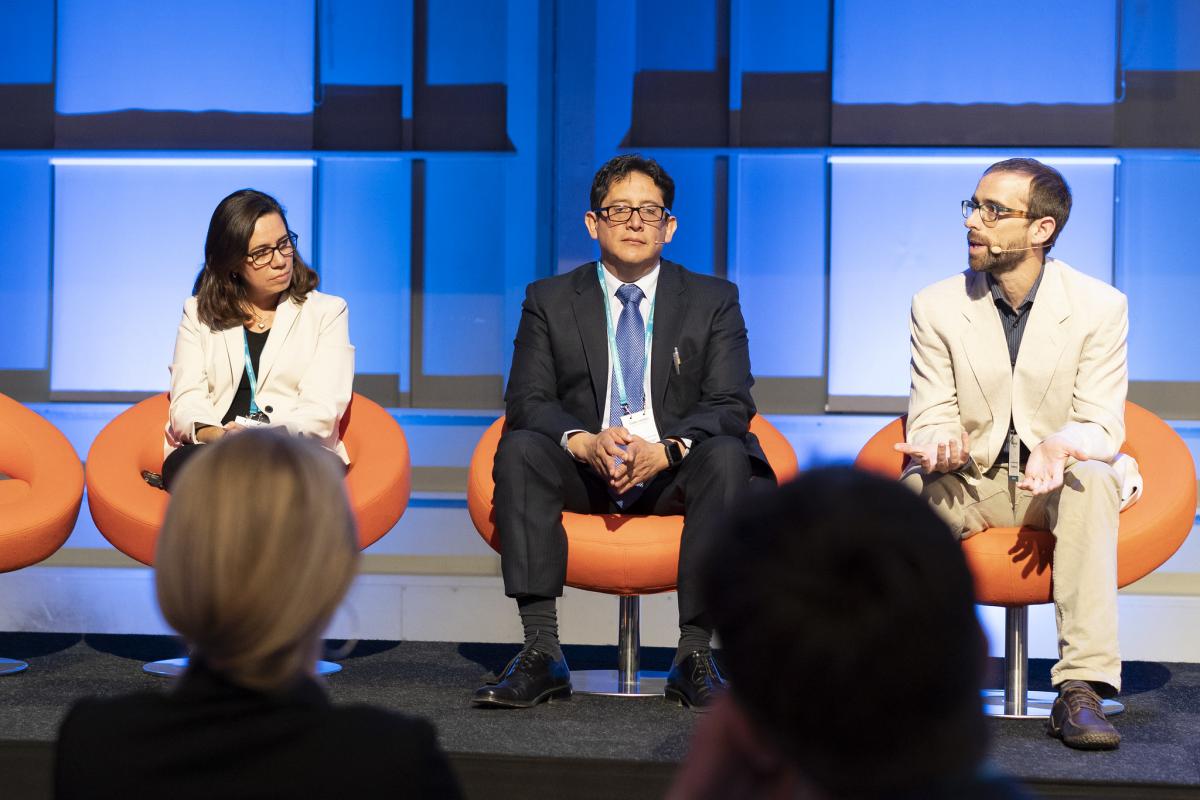Representatives from programmes in Latin America and Asia shared successes and failures.
Published on: 07/05/2019
Achieving access to adequate and equitable water, sanitation and hygiene for all by 2030 as stated in the Sustainable Development Goals (SDGs) is off track in regions like Latin America and the Caribbean. 24 million people in the area do not have access to water while 195 million cannot safely manage it, according to data from Fundación Avina.
Strong leadership and compelling narratives around notions of well-being, modernity, and nation-building as used in countries like South Korea or Singapore, are needed to overcome this challenge, says Andrés Hueso from the organisation WaterAid. Both countries improved national sanitation coverage in just a few decades. In addition, sharing successes and failures could help in finding the way to adequate access to sanitation for all.
These examples from around the world were discussed at the water, sanitation and hygiene (WASH) systems symposium ‘All systems go!’ in The Hague, the Netherlands, 12-14 March 2019. In a session titled ‘Progress in Latin America and Asia: what drives service delivery improvements?’ successful water supply and sanitation improvement initiatives in Latin America and Asia were discussed. Participants exchanged information on strategies for promoting south-south collaboration and best practices.

Lil Soto, from Fundación Avina, for example, believes inclusive, collaborative processes with inter-sectoral actors are essential for addressing south-south WASH issues. Her organisation is linking the experiences in Latin America with some in Sub-Saharan countries like Mozambique, in order to learn from each other. Fundación Avina is working in an initiative that brings together government officials, researchers, business people, experts, co-investors, members of civil society organisations and individual citizens. All are part of collaborative processes to analyse common problems and propose a shared agenda to implement innovative social, technological and economic solutions. As a result, about 20.000 communities from 15 Latin American countries are joining forces and organising themselves at the national, sub-national and regional level and creating visibility for rural water challenges and opportunities. They are also actively contributing to the discussion of water management related legal frameworks and the sustainability of rural water systems, by sharing knowledge, providing mentoring, and technical assistance to water community managers. “Exchanging experiences helped us to understand our own context. It also helped us to accelerate innovation”, said Soto.
Daniel Oporto, from Water for People, highlighted a project in San Pedro, Bolivia where until 2006 26% of the population didn’t have a connection to drinking water and 33% of the educational units practised open defecation. Besides, 67% of the educational units had bathrooms. Ever since, the organisation has been working on a long-term plan that includes creating a local WASH department from scratch and organising a co-financing plan to ensure 100% service in community buildings, schools, and clinics. They recently accomplished those objectives. Now the challenge for San Pedro is to maintain the infrastructure. They also need to link the local monitoring systems with the national WASH monitoring system the country is still developing. There are also challenges in water treatment to assure quality, as the water presents relative high levels of fluoride in the area.
The discussions on the best ways to ensure availability and sustainable management of water and sanitation for everyone everywhere continue...
At IRC we have strong opinions and we value honest and frank discussion, so you won't be surprised to hear that not all the opinions on this site represent our official policy.